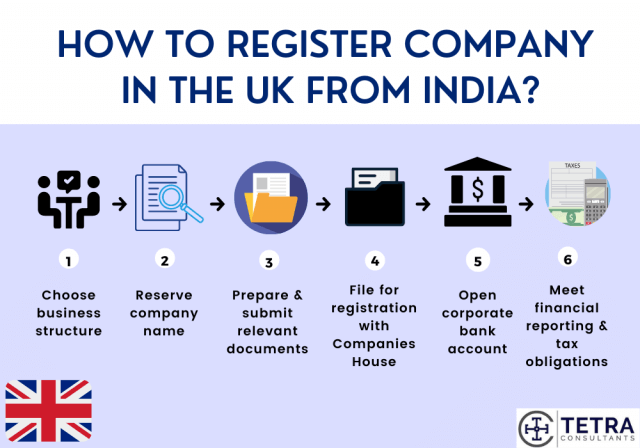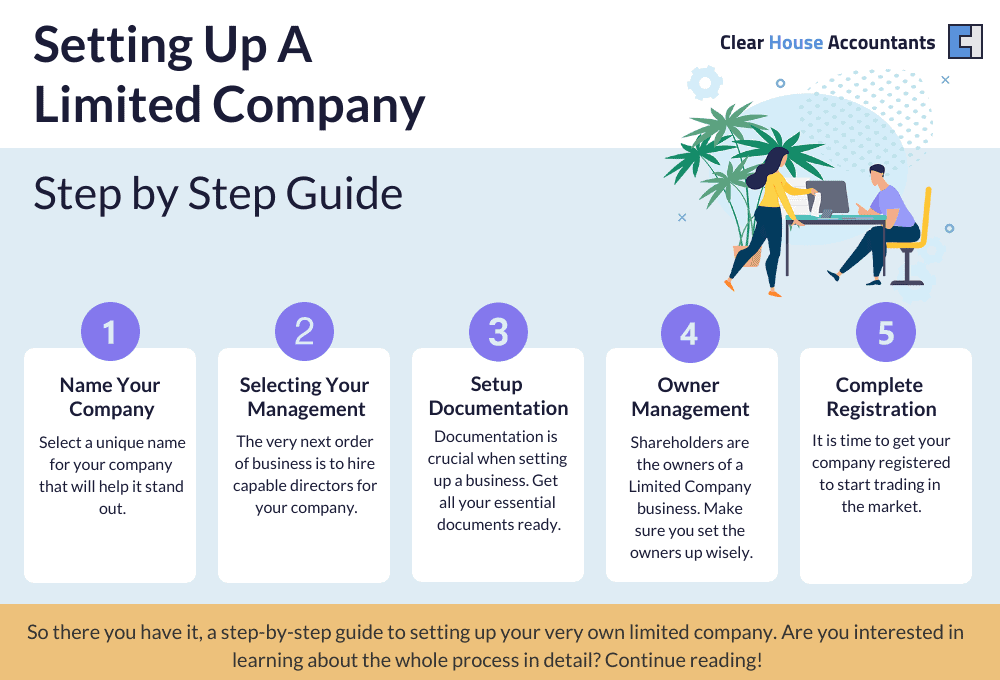Business Registration Process in the UK, starting a business in the United Kingdom is a journey of innovation and ambition. However, navigating the intricacies of the UK business registration requirements and understanding the steps to register a business in the UK can be daunting. In this comprehensive guide, we will illuminate the company formation process in the UK while also shedding light on the specifics of registering a sole proprietorship in the UK. Let’s embark on this enlightening journey to unlock the doors of entrepreneurship in the UK.

Table of Contents
Deciphering UK Business Registration Requirements
The path to business ownership in the UK begins with a clear understanding of the registration prerequisites. These UK business registration requirements form the foundation upon which your entrepreneurial dreams will flourish.
1. Business Structure Selection
Before diving into the registration process, you must decide on the structure of your business. The UK offers various options, including:
- Sole Proprietorship: As the sole owner, you have complete control but also bear all responsibilities and liabilities.
- Limited Liability Partnership (LLP): Ideal for professionals, it provides liability protection while allowing shared management.
- Private Limited Company (Ltd): Offers limited liability and can have multiple shareholders, making it suitable for larger ventures.
- Public Limited Company (PLC): Reserved for larger businesses with publicly traded shares.
2. Business Name Approval
Selecting a unique and meaningful name for your business is crucial. Ensure it’s not already in use and adheres to naming regulations. You can also consider trademark registration to protect your brand identity.

3. Registered Office Address
Your business must have a registered office address in the UK. This is where official correspondence will be sent. It can be your home address or a separate business address.
4. Director and Shareholder Information
Provide details about the company directors and shareholders, including their names, addresses, and shareholdings. This information is essential for legal compliance.
Navigating the Steps to Register a Business in the UK
Now that you’ve grasped the essentials, let’s proceed to the practical steps involved in the company formation process in the UK.

Step 1: Choose a Business Structure
Select the most suitable business structure based on your goals, risk tolerance, and legal requirements. For simplicity, let’s assume you’ve chosen to register a sole proprietorship.
Step 2: Business Name Registration
As a sole proprietor, you’ll use your own name for the business, or you can choose a trading name. Ensure it complies with naming regulations and is available for use.
Step 3: Register with HM Revenue and Customs (HMRC)
For tax purposes, you must register with HMRC. This can be done online, and you’ll receive a unique tax reference number.
Step 4: Register for Self-Assessment
If you’re a sole proprietor, you’ll need to register for self-assessment to report your income and pay taxes on your earnings.
Step 5: VAT Registration (If Applicable)
If your annual turnover exceeds the VAT threshold, you must register for Value Added Tax (VAT). This involves collecting VAT from customers and remitting it to HMRC.
Step 6: Open a Business Bank Account
Separate your personal and business finances by opening a dedicated business bank account. This simplifies financial management and tax reporting.
Step 7: Obtain Necessary Licenses and Permits
Depending on your business type and location, you may require licenses or permits. Check with your local authority to ensure compliance.
The Sole Proprietorship Advantage
As we delve deeper into the specifics of registering a sole proprietorship in the UK, it’s worth highlighting the unique advantages this business structure offers.
1. Full Control
As a sole proprietor, you are the sole decision-maker. You have full control over business operations, allowing for quick and agile decision-making.
2. Minimal Compliance Burden
Compared to larger corporate structures, sole proprietorships have fewer compliance requirements, making them a suitable choice for those looking to start small.
3. Direct Taxation
Sole proprietors are subject to direct taxation, which can simplify the tax process. You report your business income and expenses on your personal tax return.
4. Easy Setup and Low Costs
Registering a sole proprietorship is straightforward and cost-effective. There’s no need for complex legal agreements or extensive paperwork.
Challenges of Sole Proprietorships
While sole proprietorships offer simplicity, they also come with challenges worth considering:
- Unlimited Liability: You are personally liable for all business debts and liabilities. This can put your personal assets at risk.
- Limited Growth Potential: Sole proprietorships may face limitations in terms of raising capital and expanding operations.
- Single Decision-Maker: While control is an advantage, it can also be a limitation when it comes to seeking input and expertise from others.
Conclusion: Business Registration Process in the UK

The journey of business registration in the UK is a transformative one. Understanding the UK business registration requirements, following the steps to register a business in the UK, and exploring the nuances of company formation in the UK are crucial to your success. As you embark on this path, remember that your choice of business structure, whether it’s a sole proprietorship or another entity, will shape your entrepreneurial experience.
The UK offers a fertile ground for businesses to flourish, and by navigating the registration process with confidence and compliance, you’ll be well on your way to realizing your entrepreneurial aspirations in this dynamic and thriving market.